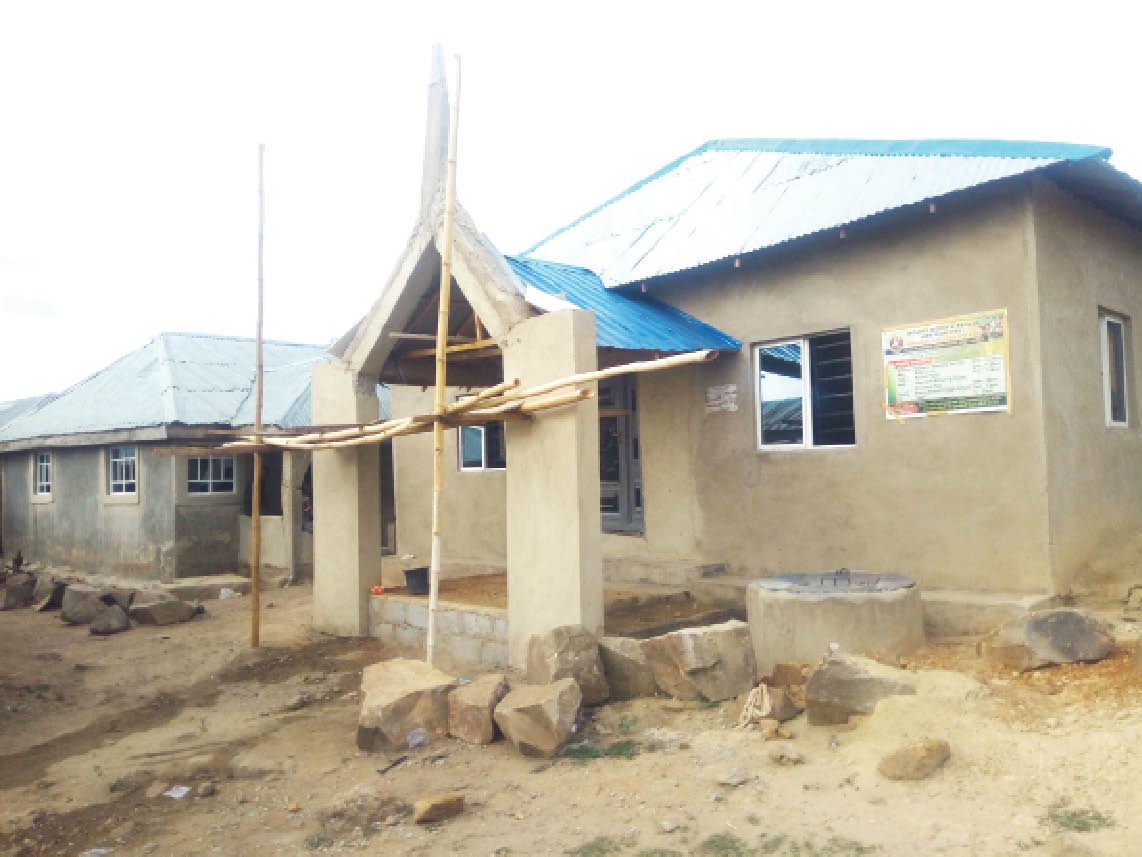We must regulate orphanages
The idea of an orphanage, though a reality in our society today, used to be seen as alien by many Africans who considered it as a colonial legacy. As these individuals believe, once a primary caregiver dies, the child or children left behind were immediately absorbed into the families of close relatives. They, therefore, saw […]

Mount Mercy Refuge Ark Ministry Church, beside it a two-bedroom apartment where 21 children were housed
The idea of an orphanage, though a reality in our society today, used to be seen as alien by many Africans who considered it as a colonial legacy. As these individuals believe, once a primary caregiver dies, the child or children left behind were immediately absorbed into the families of close relatives. They, therefore, saw it as a shame to even call a child an orphan, let alone have a home where they are kept and taken care of.
However, today poverty, negligence and clear irresponsibility on the part of those saddled with, or capable of bringing in new members into the society have allowed orphanages to flourish in our midst. Children, not necessarily orphans, end up in orphanages because they have been abandoned by their parents or subjected to torture and other forms of abuse. Some find their way to orphanages because they are birthed out of wedlock, and those who sired them are ashamed of keeping them.
But these orphanages, as reports have shown, are not safe for the children in some instances, just as some of them are set up as cover for other activities.
Reports have shown that children no longer find succour in orphanages as they have become tools for use and abuse by their proprietors, due to little or no supervision on the part of government, which is supposed to regulate their existence. Indeed, even in government-owned orphanages, children are being maltreated, with few having enough food to eat and clothes to wear and sometimes, given up for adoption or sold to persons without any background checks.
Some have been, in the name of orphanages, running what Nigerians have come to describe as ‘baby factories’, where underage girls are impregnated and their babies sold.
A recent investigative report by the founder of the Foundation for Investigative Journalism, Fisayo Soyombo, brought to the fore some of the nefarious activities carried out by orphanages. In the report, Fisayo found that an orphanage had been selling babies in Anambra State. He also bought a baby for N2 million, while carrying out the investigation and he narrated how easy it was for him to take possession of the baby. He alluded to the fact that the security operatives were complicit in the act.
It is good that the state government shut down the facility after the report, but we expect it to do more. The matter must be thoroughly investigated and all those found culpable be made to face the law.
It would also be recalled that in November last year, the Nasarawa State Police Command uncovered an orphanage used as a baby factory in the Ado Kasa area of the state. The police said operatives attached to the area command in New Karu visited the orphanage following information received on the activities in the area, and six adolescent girls and a baby were rescued from the facility.
It also found that the operator of the orphanage abducted the girls, held them, hostage, till they gave birth, and sold their children to the highest bidder, not minding whether the buyers were barren couples in need of a child to adopt or those involved in ritual killings for material purposes.
It is time for the government to take a holistic look at the idea of orphanages in Nigeria and their conduct. A situation where the facilities run without proper supervision must stop. There must be set rules which should be adhered to and violators must be punished. The government should take its regulatory responsibility seriously. All those seeking to establish orphanages or charity homes must meet stringent conditions and be subjected to stringent scrutiny, with background checks. There should also be sureties, who must be people of proven integrity, willing to stake their necks in case of any involvement in illegal activities.
We also need laws at all levels of government to regulate the running of orphanages and charity homes so as to prevent abuse and misuse. The laws must prescribe commensurate penalties to individuals, organizations or groups found wanting. A good starting point will be to review existing licenses or permits so as to weed out bad eggs from the system. Government should come up with ways to monitor and evaluate the activities of orphanages and charity homes to ensure that they are being operated in accordance with the said laws.
Non-governmental organisations, especially those dealing with child rights, should take more interest in the activities of orphanages to protect the children living in them and blow the whistle when necessary.
Since government alone cannot address the myriad of problems associated with orphanages in Nigeria, individuals need to play a role in the upkeep of their nephews, nieces, cousins and other relations in the absence of their primary caregivers/parents. This will reduce the number of vulnerable children at the disposal of orphanages.
Above all, we call on traditional rulers, religious leaders and community heads to use their positions to sensitize citizens against having children outside of wedlock, as a way of reducing orphanages in the country.
